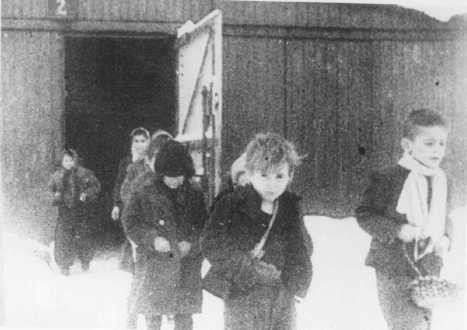One day the Gestapo hanged a child. Even the SS were disturbed by the prospect of hanging a young boy in front of thousands of spectators. The child who, [Elie] Wiesel recalled, had the face of a “sad-eyed angel,” was silent, lividly pale and almost calm as he ascended the gallows. Behind Wiesel, one of the other prisoners asked: “Where is God? Where is He?” It took the child half an hour to die, while the prisoners were forced to look him in the face. The same man asked again: “Where is God now?” And Wiesel heard a voice within him make this answer: “Where is He? Here He is—He is hanging here on this gallows.”
Dostoyevsky had said that the death of a single child could make God unacceptable, but even he, no stranger to inhumanity, had not imagined the death of a child under such circumstances. The horror of Auschwitz is a stark challenge to many of the more conventional ideas of God. The remote God of the philosophers, lost in a transcendent apatheia [a Stoical “freedom from emotion”], becomes intolerable. Many Jews can no longer subscribe to the biblical idea of God who manifests himself in history, who, they say with Wiesel, died in Auschwitz. The idea of a personal God, like one of us writ large, is fraught with difficulty. If this God is omnipotent, he could have prevented the Holocaust. If he was unable to stop it, he is impotent and useless; if he could have stopped it and chose not to, he is a monster. Jews are not the only people who believe that the Holocaust put an end to conventional theology.
Yet it is also true that even in Auschwitz some Jews continued to study the Talmud and observe the traditional festivals, not because they hoped that God would rescue them but because it made sense. There is a story that one day in Auschwitz, a group of Jews put God on trial. They charged him with cruelty and betrayal. Like Job, they found no consolation in the usual answers to the problem of evil and suffering in the midst of this current obscenity. They could find no excuse for God, no extenuating circumstances, so they found him guilty and, presumably, worthy of death. The Rabbi pronounced the verdict. Then he looked up and said that the trial was over: it was time for the evening prayer.
Karen Armstrong, from A History of God: The 4000-Year Quest of Judaism, Christianity and Islam

No comments:
Post a Comment